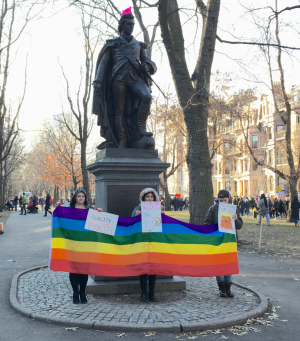It's not morality; it's a response to a public-health emergency
Submitted on
 Australian political leader Barnaby Joyce (above) came across my screen today, and I couldn’t let him go.
Australian political leader Barnaby Joyce (above) came across my screen today, and I couldn’t let him go.
An institute study argues that a national anti-obesity effort should be funded by a tax on sugary beverages, and Joyce decried it as “another moralistic tax.” [Link includes video of interview.]
Joyce calls the idea “bonkers mad” because it would create “massive problems” for the sugar industry. He says the Australian Tax Office isn’t going to make people lose weight, going for a run and cutting portion sizes will. You may be saying, “Yeah, so what? This is how conservatives react to this proposed public-health response to an evident public-health problem.” I would respond that you’re correct.
The reason for writing is to poke at this idea of a “moralistic tax.” There’s nothing moral about it. The ubiquity of refined sugar, most notoriously in sugary beverages, threatens public health. Substantial societal costs result from this threat, and it is the job of government to meet public-health threats.
To say that we should leave public-health threats to personal responsibility — now that's “bonkers mad.”
- Read more about It's not morality; it's a response to a public-health emergency
- Michael's blog
- Log in to post comments


 The reason I used “so-called” above is that these issues affect women more, but they are not women’s issues. As a number of signs at the rally said, women’s rights are human rights. I’m for human rights, so why would my attendance surprise anyone?
The reason I used “so-called” above is that these issues affect women more, but they are not women’s issues. As a number of signs at the rally said, women’s rights are human rights. I’m for human rights, so why would my attendance surprise anyone?